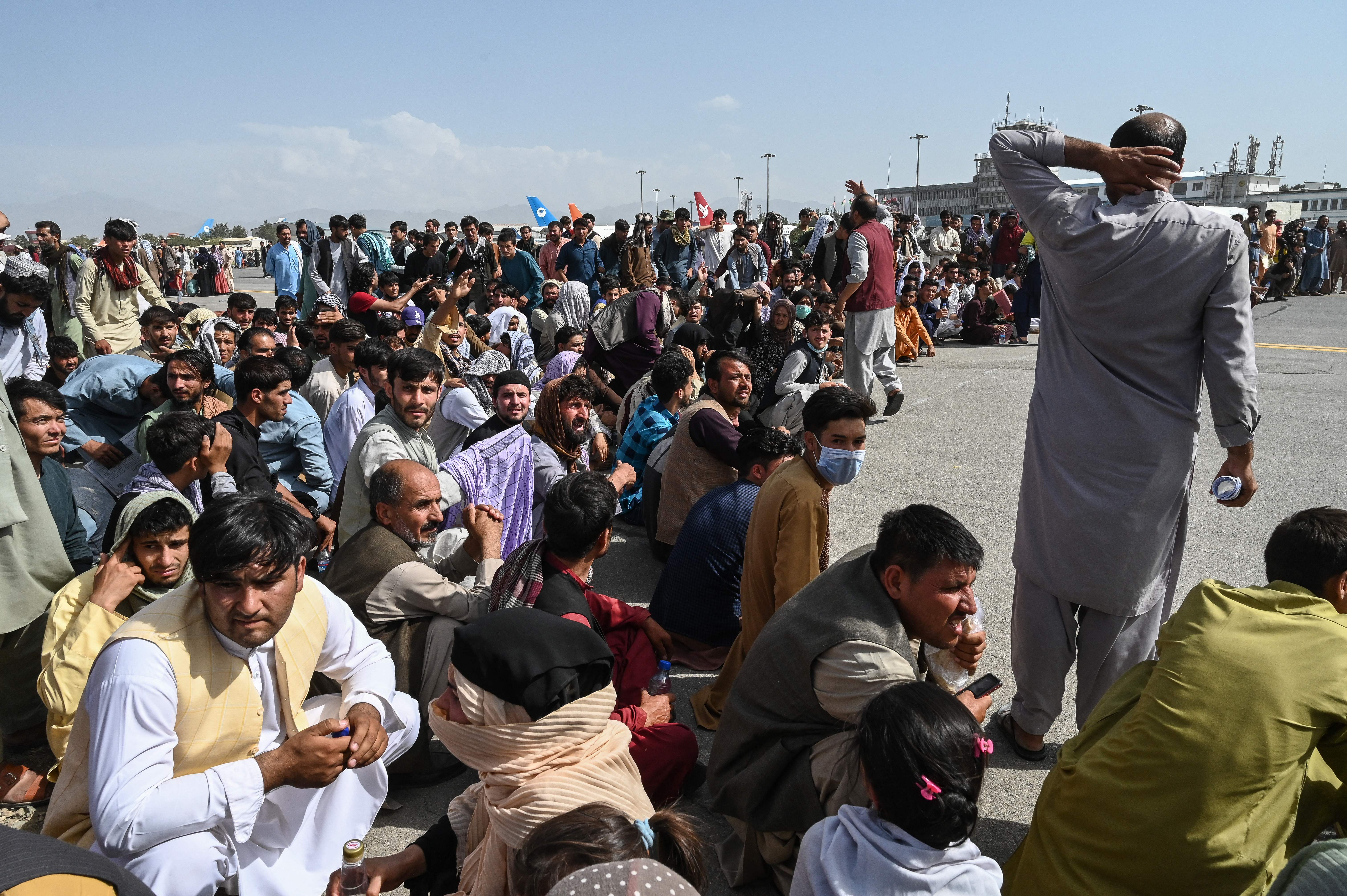Afghan refugees will come whether Britain likes it or not – we need to help them
Editorial: It’s inevitable that thousands of people fleeing the Talban will seek asylum in the UK. Now is the time to organise a rational, fair and comprehensive system of resettlement

It takes no great powers of prescience to work out the likely course of events in Afghanistan over the next few months. What might be termed, with dark irony, the “New Taliban” are rather more media savvy than the regime that was ousted in 2001. They are attempting to reassure their compatriots, and the wider world, that the population is safe and should go about its routine without fear, that is apart from “traitors”.
A general “amnesty” has been announced and women have been urged to join the government – while some ministers and the mayor of Kabul have been asked to stay in post for the time being. Of course, the evidence during their previous period of rule and from their recent successful campaign to take back control of the country suggests they are anything but tolerant and moderate; and that counts for rather more than some of the conciliatory messages.
So there will be refugees. Many thousands of them, already leaving. It is the inevitable legacy of the two decades of struggle to establish a democratic free nation which have now ended so needlessly and ignominiously. They cannot stay in their homeland, and nor can their families, because they know what the Taliban has in mind for them, whatever they may say. They are fleeing for their lives, for they have no choice.
Britain, like other countries in the west, does have a choice. Organise a rational, fair and comprehensive system of resettlement, or pretend the problem doesn’t exist – or is much smaller than it actually is – put an unrealistic cap on numbers, and wait for the former interpreters, fixers, aid workers and parts of the former Afghan military to turn up in dinghies on the beaches of Kent or in the back of lorries.
It appears the latter is where we are headed. A new resettlement scheme, similar to the one offered to Syrians in 2014, will see 20,000 Afghan refugees taken in by the UK – with priority given to women, children and religious minorities. That seems unlikely to work. No arbitrary limit can be placed in such an exercise, especially when there is no clear idea about how many close family members will need to be accommodated.
The obligation to offer asylum to any refugee is absolute under the European Convention, and it is politically and morally imperative for those who have served British entities in Afghanistan – the military, aid agencies, the British Council and the rest. There is also a wider obligation to those who served as allies in the various arms of the Afghan state.
Nor can those who worked with charities or the media be excluded – the Taliban are not interested in the distinctions between the British Council and the British government, say. They will all be treated as traitors and we know what that means. What is any western state to say to a driver who used to ferry American contractors around in, say, 2005 and has been betrayed to the Taliban? Or who served with western-trained Afghan special forces? Do we say they don’t tick the boxes so they have to await their fate?
Thus far, most of the usual anti-migrant agitators have refrained from attacking the Afghan refugees, but they will probably pile the pressure onto Priti Patel, the home secretary, in due course. Those refugees may well be able to claim truthfully that they put their lives on the line for Britain, in effect, but there will be those who will mock and deny their account of their lives.
In such a messy retreat as this ignoble scramble to get out of Kabul, it may yet be possible for Britain to leave Afghanistan with some honour, but the signs are not encouraging. The UK does not seem to be able to face the human consequences of its failure arriving on its shores.



Join our commenting forum
Join thought-provoking conversations, follow other Independent readers and see their replies
Comments